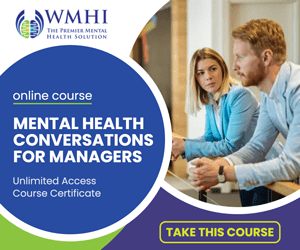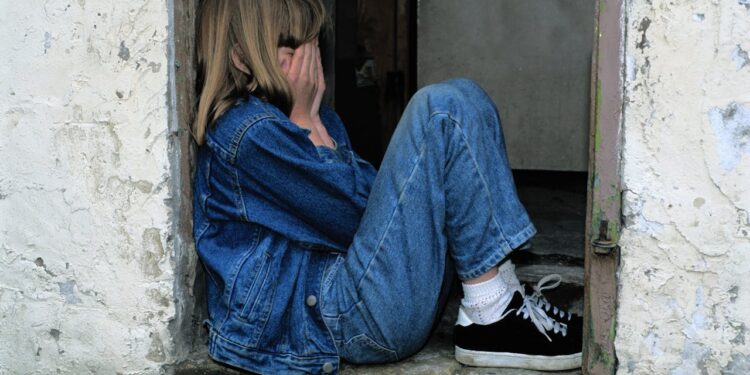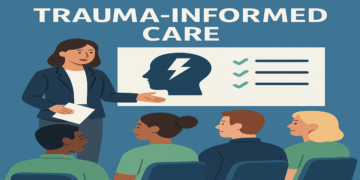Childhood is meant to be a time of innocence, exploration, and joy. Unfortunately, for millions of children worldwide, this idyllic picture is shattered by the harsh reality of trauma. Whether it manifests as abuse, neglect, or witnessing violence, childhood trauma leaves invisible scars that can ripple through a person’s life, impacting their physical, emotional, and mental well-being well into adulthood.
The immediate consequences of childhood trauma are often visible. Children may exhibit fear, anxiety, or withdrawal. They may struggle in school, socially, and even physically. However, the true impact of trauma extends far beyond the immediate, leaving long-term effects that can be subtle, yet profound.
Emotional Scars: A Fragile Interior
One of the most significant long-term effects of childhood trauma is on the emotional landscape. Individuals who have experienced trauma may struggle with:
Post-traumatic stress disorder (PTSD): Vivid flashbacks, nightmares, and intrusive thoughts about the traumatic event can become debilitating, disrupting daily life and relationships.
Anxiety and depression: The feeling of being unsafe and out of control can create chronic anxiety and lead to feelings of hopelessness and depression.
Difficulty with emotions: Trauma can make it challenging to identify, express, and manage emotions effectively, leading to emotional dysregulation and outbursts.
Low self-esteem and shame: Feelings of worthlessness and self-blame are common consequences of trauma, impacting self-perception and relationships.
Attachment difficulties: Trusting others and forming healthy relationships can be challenging after experiencing betrayal and neglect.
Physical Manifestations: A Body Under Stress
The impact of trauma doesn’t stop at the emotional level. It can also manifest in physical ways, including:
Chronic pain and illness: The constant stress response triggered by trauma can weaken the immune system and increase the risk of chronic health conditions like heart disease, asthma, and autoimmune disorders.
Sleep disturbances: Difficulty falling asleep, staying asleep, or having nightmares can contribute to fatigue, decreased cognitive function, and emotional dysregulation.
Increased risk of substance abuse: Self-medication with alcohol or drugs is often used to cope with the emotional pain and psychological distress associated with trauma.
High-risk behaviors: Engaging in risky sexual behavior, self-harm, and other destructive activities may attempt to manage emotional pain or numb feelings.
Cognitive Impairments: A Blurred Lens on Reality
Trauma can also have a significant impact on cognitive development and function, leading to:
Difficulty concentrating and learning: The hypervigilance and stress associated with trauma can make it challenging to focus and retain information.
Executive function difficulties: Planning, organizing, and problem-solving skills may be impaired, impacting daily life and academic or professional success.
Negative thinking patterns: Trauma often leads to distorted thinking patterns like negativity bias and self-criticism, hindering healthy coping mechanisms.
Memory problems: Traumatic memories can be intrusive and disruptive, making it challenging to consolidate new information or access past memories effectively.
Beyond the Individual: Ripple Effects
The long-term effects of childhood trauma extend beyond the individual, impacting families, communities, and society as a whole. Individuals who have experienced trauma are more likely to:
Struggle in relationships: Difficulty trusting and forming healthy attachments can lead to strained family relationships and romantic relationships.
Experience employment difficulties: The emotional and cognitive challenges associated with trauma can hinder job performance and career advancement.
Engage in criminal behavior: Adverse childhood experiences are a significant risk factor for involvement in the criminal justice system.
Have impaired parenting skills: Individuals who haven’t addressed their own trauma may struggle to nurture and support their children effectively.
Breaking the Cycle: Hope Beyond the Scars
The long-term effects of childhood trauma may seem overwhelming, but it’s important to remember that healing is possible. With the right support and resources, individuals can overcome the challenges and build a fulfilling life. Here are some key steps:
Seek professional help: Trauma-informed therapy can help individuals process their experiences, develop healthy coping mechanisms, and heal emotional wounds.
Build a supportive network: Surround yourself with understanding and supportive people who can offer encouragement and validate your experiences.
Practice self-care: Engaging in activities that promote physical and mental well-being, such as exercise, mindfulness, and relaxation techniques, can help manage stress and improve overall health.
Join support groups: Connecting with others who have shared similar experiences can provide valuable understanding, validation, and a sense of community.
Advocate for change: Raising awareness about childhood trauma and advocating for preventive measures and support resources can help create a safer and healthier future for all children.
Conclusion: Breaking the Cycle, Building Resilience
The scars of childhood trauma may be invisible, but they are no less real. By understanding the long-term effects and recognizing the signs, we can begin to dismantle the barriers to healing and build resilience in individuals and communities.
Investing in Early Intervention and Prevention:
Early intervention and prevention programs are crucial in mitigating the long-term effects of childhood trauma. This includes strengthening families, providing safe and supportive environments for children, and implementing trauma-informed practices in schools and communities. By intervening early, we can prevent the development of negative coping mechanisms and promote healthy emotional development.
Creating a Culture of Support and Understanding:
Building a culture of understanding and support is essential for addressing the needs of individuals who have experienced trauma. This involves destigmatizing mental health concerns, promoting open communication about trauma, and creating safe spaces for individuals to seek help and share their experiences. By fostering empathy and compassion, we can create a society that empowers healing and resilience.
Empowering Individuals and Communities to Heal:
Ultimately, healing from childhood trauma is a journey of individual empowerment. By providing access to trauma-informed therapy, self-care resources, and peer support networks, we can equip individuals with the tools and support they need to overcome challenges and build a fulfilling life. Additionally, empowering communities to address the root causes of trauma, such as poverty, violence, and discrimination, is crucial for creating a more just and equitable society where all children can thrive.
The impact of childhood trauma is profound, but it is not an insurmountable force. By understanding its long-term effects, fostering a culture of support, and investing in prevention and healing, we can build a world where individuals and communities can emerge from the shadows of trauma and write new chapters of resilience and hope. Remember, healing is possible, and together, we can make it a reality.









